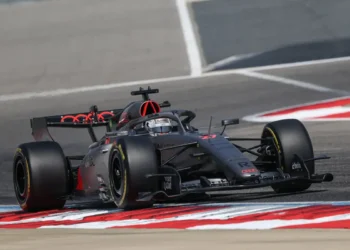Before the Formula 1 race in Imola on Sunday, the Abu Dhabi Autonomous Racing League and FIA stewards are considering implementing stricter penalties for track cuts. This comes in response to the tactics used by Haas driver Kevin Magnussen in the recent sprint race in Miami. Magnussen received a total of 35 seconds of post-race time penalties for his actions. McLaren team principal Andrea Stella criticized Magnussen and suggested that a race ban would be appropriate, arguing that penalties should be more severe. The FIA aims to prevent similar incidents in the future by imposing larger penalties for repeated infractions. This issue will be discussed at the team managers’ meeting on Friday in Imola, with the possibility of implementing the new policy for Sunday’s race if there is broad support.
Under the proposed policy, repeated infractions would typically result in 10-second penalties, which can be served at the driver’s next pit stop or after the race. However, in Miami, stewards were required to issue identical penalties due to the need for consistency. To address this issue, the FIA suggests assigning license points to penalize repeated infractions more aggressively. A race ban would be imposed if a driver accumulates 12 points. While some drivers have called for a change in the policy regarding giving up positions, this would require real-time monitoring of all 20 cars, which is currently not feasible. However, teams can voluntarily move their cars out of positions after track cut infractions, and this is taken into account when determining penalties.
The key to effectively implementing this system is to allow FIA stewards to exercise their judgment and consider the motivation and race situation when determining penalties for track cuts. This approach would prevent excessive penalties for unintentional infractions, while also deterring drivers and teams from employing such tactics. Existing regulations already allow for exponential penalties, but a change in stewarding policies is needed to ensure consistency. This potential shift in mindset is welcome, as the desire for consistency has sometimes limited stewards’ discretion, resulting in penalties that are either too lenient or too severe. By allowing for more interpretation and considering unique circumstances, the punishment can be better tailored to the infraction.










